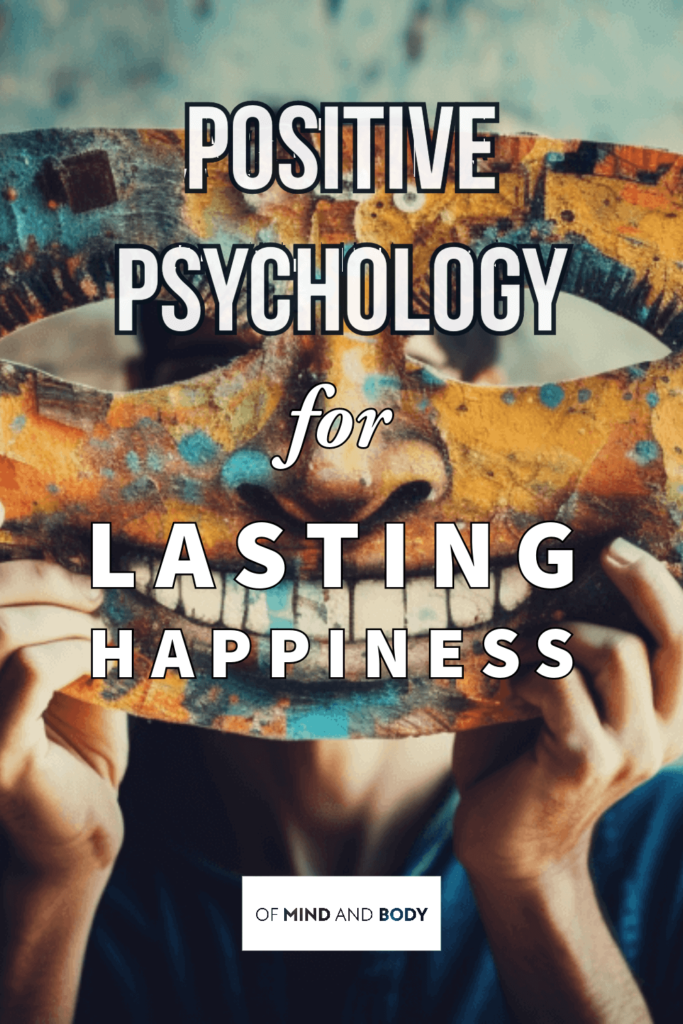
Ever feel like you’re stuck in a happiness rut, no matter what good comes your way? You’re not alone. That’s called Hedonic Adaptation, and guess what? Positive Psychology might just be the game-changer you need. Dive in to discover how focusing on your strengths and virtues can help you break free from that emotional plateau.
The Quest for Lasting Happiness: A Universal Endeavor

As we navigate through life at increasingly break-neck speeds, the pursuit of happiness often feels like a Sisyphean task. We chase after promotions, accumulate material possessions, and seek new experiences, all in the hope of capturing and maintaining that elusive feeling of joy. Yet, more often than not, the happiness we find is transient. You land that dream job, and for a few weeks, you’re on cloud nine. But soon, the novelty wears off, and you find yourself yearning for the next big thing. This cycle, known as hedonic adaptation, is a psychological phenomenon where the impact of positive events diminishes over time, leaving us in a constant state of wanting more.
But what if there were a way to break this cycle? Enter positive psychology, a field that offers a comprehensive roadmap for achieving lasting happiness. Unlike traditional self-help advice, which often relies on anecdotal evidence, positive psychology is grounded in empirical research. It provides actionable strategies, from cultivating mindfulness to enhancing social connections, that have been scientifically proven to improve well-being.
For example, consider the practice of gratitude. Instead of fixating on what you lack, take a few minutes each day to jot down things you’re thankful for. It could be as simple as a delicious meal or as significant as a loving relationship. This simple act shifts your focus from scarcity to abundance, creating a positive feedback loop that enhances emotional well-being.
What is Meant by Positive Psychology?

Positive psychology is far more than just “positive thinking” or an optimistic outlook on life. It’s a rigorous academic discipline that emerged in the late 20th century, spearheaded by psychologists like Martin Seligman. The field aims to study and promote the factors that allow individuals and communities to thrive. It explores a range of topics, from the neurochemical basis of happiness to the impact of social systems on individual well–being.
One of the key contributions of positive psychology is the development of validated assessments and interventions. These are not mere platitudes or motivational slogans but are techniques and practices backed by scientific research. For instance, the “Three Good Things” exercise encourages individuals to write down three positive experiences each day. Studies show that this simple practice can significantly increase happiness and decrease depressive symptoms over time.
Another cornerstone of positive psychology is the concept of “flow,” a state of complete immersion in an activity. Whether you’re an artist lost in your creative process or a programmer engrossed in solving complex algorithms, achieving a flow state can make the activity intrinsically rewarding. This not only enhances the quality of the experience but also contributes to skill development and personal growth.
Moreover, positive psychology offers insights into how we can transcend the limitations of hedonic adaptation. While it’s natural for the impact of positive events to diminish over time, certain strategies can mitigate this effect. For example, “savouring” involves consciously relishing positive experiences, both during and after they occur. By taking the time to savour these moments, you can prolong their emotional impact and counteract the effects of hedonic adaptation.
In summary, positive psychology provides a robust framework for understanding the complexities of human happiness. It offers empirically validated strategies that go beyond mere positive thinking, providing a holistic approach to well-being. Whether you’re grappling with life’s challenges or simply seeking to enhance your quality of life, the principles of positive psychology offer valuable insights for achieving lasting happiness.
Who is the Father of Positive Psychology?
The Man Behind the Movement: Martin Seligman
Martin Seligman, a name synonymous with the advent of positive psychology, revolutionised the way we approach mental health. Before Seligman, the focus of psychology was primarily on treating mental illnesses—essentially, a problem-focused approach. Seligman, however, posed a radical question:
What if psychology could be about more than just fixing problems?
What if it could be about building strengths and fostering well-being?
Seligman’s groundbreaking work began with his studies on “learned helplessness,” a term he coined to describe the psychological condition where individuals feel powerless to change their circumstances. This led him to explore its antithesis—empowerment and well–being. His subsequent research laid the groundwork for what we now know as positive psychology, a field dedicated to the scientific study of the positive aspects of human life, including happiness, well–being, and flourishing.
For example, consider the workplace. Before the influence of Seligman’s positive psychology, employee wellness programs might have focused solely on stress management or treating job-related anxiety. But today, influenced by Seligman’s work, these programs are just as likely to include modules on building strengths, fostering positive team dynamics, and enhancing job satisfaction.
The Shift from Illness to Wellness in Psychological Studies
The traditional approach to psychology was akin to a medical model: diagnose the disorder and treat the symptoms. This problem–focused approach left little room for exploring human potential or enhancing the quality of life for individuals who may not have a diagnosable mental illness but still wanted to improve their mental well–being.
Positive psychology heralded a paradigm shift. Instead of merely treating mental illnesses, the focus expanded to nurturing human potential and enhancing the quality of life. This shift was not just theoretical but had practical applications across various domains of human activity.
Take education, for instance. In a traditional educational setting, the focus might be on identifying learning disabilities or behavioural issues and addressing them. While this is undoubtedly important, positive psychology asks us to look beyond the problems. It encourages educators to also focus on students’ strengths and virtues, such as curiosity, love of learning, and resilience. Schools influenced by positive psychology might implement programs that teach emotional intelligence, offer courses in mindfulness, or provide opportunities for students to engage in community service, thereby nurturing their sense of purpose and meaning.
Similarly, in healthcare, the application of positive psychology principles has led to the development of holistic wellness programs that go beyond treating diseases. These programs might include stress–reduction techniques, sure, but they also focus on enhancing the patient’s overall well–being through nutrition, exercise, and even spiritual counselling.
In essence, positive psychology has broadened the scope of psychological studies and applications to include not just the treatment of mental illnesses but also the promotion of mental wellness. It’s a shift from a deficit model to a strengths-based model, a move from alleviating suffering to promoting flourishing. And this shift has had a profound impact on how we approach mental health, education, healthcare, and even organisational development.
What are the 5 points of Positive Psychology?

The PERMA Model: Five Elements of Well-Being
Positive Emotion
Positive emotions like joy, gratitude, and contentment serve as the cornerstone of the PERMA model. These emotions not only enhance our immediate experience but also open doors to new possibilities. For instance, feeling joyous can make you more receptive to social interactions, thereby enriching your network of relationships.
Practical Example:
Consider keeping a “Joy Journal,” where you jot down moments that bring you happiness. Over time, you’ll notice patterns—perhaps it’s spending time with loved ones or engaging in a particular hobby—that consistently elevate your mood.
Engagement
Engagement refers to the state of being completely absorbed in an activity, also known as “flow.” When you’re engaged, time seems to fly, and you lose yourself in what you’re doing.
Practical Example:
If you love painting, schedule regular intervals to indulge in it. During these periods, focus solely on your art, eliminating distractions. This dedicated time not only improves your skill but also provides a mental break, thanks to the state of flow.
Relationships
Humans are social creatures, and meaningful relationships contribute significantly to our well-being. These relationships can be familial, platonic, or romantic, but the key is authentic connection.
Practical Example:
Make it a point to have regular catch-ups with friends or family, whether it’s a weekly dinner or a monthly outing. These interactions serve as emotional anchors, providing support and enriching your life.
Meaning
Meaning comes from serving a cause greater than ourselves. Whether it’s through work, volunteerism, or personal projects, meaning adds a layer of richness to our lives that hedonic pleasures cannot.
Practical Example:
If environmental conservation is a cause close to your heart, consider volunteering at a local nature reserve. The work may be physically tiring and even mundane at times, but the overarching purpose provides a sense of fulfilment.
Accomplishments
Accomplishments, or achievements, add a sense of competence and satisfaction to our lives. These can range from significant milestones like graduating from college to smaller wins like completing a complex puzzle.
Practical Example:
Set achievable goals for yourself, both short-term and long-term. Celebrate your wins, no matter how small. Completing a challenging project at work or even finishing a 5K run provides a sense of accomplishment that boosts your self–esteem and resilience.
Character Strengths and Virtues: The Building Blocks of a Fulfilling Life

Positive psychology has identified 24 character strengths that contribute to a fulfilling life. These strengths are categorised into six virtues: wisdom, courage, humanity, justice, temperance, and transcendence.
Wisdom
Strengths like creativity, curiosity, and love of learning fall under this virtue. These traits enable individuals to absorb and interpret the world around them, contributing to personal growth.
Practical Example:
If you have a love for learning, consider joining a book club or taking up a new course. This not only enriches your knowledge but also provides avenues for social interaction.
Courage
This virtue encompasses strengths like bravery, perseverance, and honesty. Courage enables individuals to face challenges head-on, making it a vital component for personal development.
Practical Example:
If you’re afraid of public speaking, consider joining a local Toastmasters club. Regular practice and constructive feedback will help you overcome your fears and develop your courage.
Humanity
Strengths like love, kindness, and social intelligence fall under this category. These traits enable individuals to form deep, meaningful relationships, which are crucial for emotional well–being.
Practical Example:
Simple acts of kindness, like helping a neighbour with their groceries or volunteering at a local shelter, can go a long way in enriching your life and those around you.
Justice
This virtue includes strengths like teamwork, fairness, and leadership. These traits enable individuals to contribute positively to their community, whether it’s their workplace, local community, or even their family.
Practical Example:
If you’re in a managerial position, ensure that you treat all your team members fairly, irrespective of their rank or seniority. This fosters a sense of community and mutual respect.
Temperance
Strengths like forgiveness, humility, and self–regulation fall under this virtue. These traits help individuals navigate the complexities of social interactions and personal challenges.
Practical Example:
Practising mindfulness can help improve your self-regulation skills. When you’re more aware of your thoughts and emotions, you’re better equipped to handle stressful situations.
Transcendence
This virtue includes strengths like gratitude, hope, and humour. These traits provide individuals with a broader perspective on life, enabling them to endure challenges and setbacks.
Practical Example:
Maintain a gratitude journal to regularly remind yourself of the good in your life. This practice can shift your focus from what you lack to what you have, providing a more balanced perspective on life.

In summary, PositivePsychology is far more than a trendy catchphrase; it’s a practical and effective tool for combating the often relentless task of overcoming hedonic adaptation. By identifying, understanding, and actively cultivating your unique character strengths and virtues, you’re doing more than just chasing ephemeral moments of happiness. You’re laying the groundwork for a life rich in enduring well–being and lasting joy. So, the takeaway is clear: lean into your strengths and virtues to not only mitigate the ‘been there, done that‘ feeling but also to enrich your overall quality of life.



